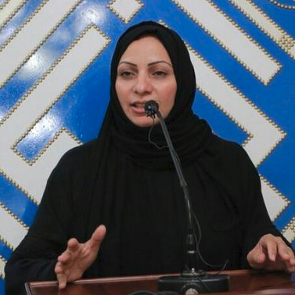Bahrain: Trying & Failing to Silence WHRDs
A few days before my friend Fatima* boarded a plane back to Bahrain last month, she sent me an blank email with no subject line. Attached was a PDF file labelled “RISKS.” It listed nearly twenty dates on which she had been threatened, harassed, interrogated, banned from travel, or watched her brothers be thrown in prison in retaliation for her human rights work.
The attacks on Fatima were diverse: arrested for documenting protests; summoned for interrogation after a peaceful sit-in; military jeeps surrounding her house while plain clothes police threaten her sister; anonymous Instagram accounts demanding that she “upload a video apologizing to the King of Bahrain” in order to “save her life.” She’s been a target of government harassment since the 2011 pro-democracy revolution, but her documentation clearly shows an increase in threats and harassment between 2014 and 2018.
“If I’m detained at the airport, you can publicize these,” she wrote me in a text message later that night. She connected me to her sister, and gave us both instructions for how to deal with a detention or physical assault by authorities.
Her fears were well founded. In addition to widespread and violent repression at home, Bahraini activists are routinely detained and interrogated without access to a lawyer at the airport. Those trying to leave the country (on their way to participate in human rights sessions at the United Nations, for example) are frequently banned from travel. Those returning from abroad face disappearance and arrest at immigration. In the time they’re being held without charge, authorities often spread defamation campaigns about their activism. In an attempt to mitigate their inability to respond to these public accusations – when they are being held incommunicado or without access to a phone – human rights defenders have begun keeping logs of their human rights work and attacks they face and sending them to colleagues abroad to publish in an emergency. Before they pack their bags to return home, activists like Fatima prepare to be disappeared.
After midnight on the day Fatima was due home, I received a text from her sister. The plane had landed an hour ago; no word from Fatima. A relative going silent while traveling is stressful for any family; silence from a Bahraini activist very often means arrest, interrogation, and physical abuse. Over the past two years, reports of women human rights defenders (WHRDs) being stripped and sexually assaulted in detention have also risen.
In 2017, WHRD Ebtisam Al-Saegh was detained and assaulted for over seven hours. Interrogators at the National Security Agency (NSA) beat her, kicked her in the head and stomach, sexually assaulted her multiple times, and threatened to rape her if she did not end her human rights work. She was kept blindfolded and standing the entire time. The NSA also threatened to abduct her daughter and subject her to the same treatment if Ebtisam did not publicly renounce her human rights activism.
Last month, nearly two hours after her plane landed, Fatima called her sister and told her she was, as suspected, being held for interrogation by airport authorities. The phone call lasted less than twenty seconds; the officer in charge had instructed Fatima to “only say that you are fine, or I will hang up the phone.” She did not tell her sister that she had been forced to remove her hijab, stripped naked, subjected to an invasive body search, and questioned about her work by a series of interrogators who confiscated her phone, laptop, passport and luggage.
After the phone call, Fatima convinced the authorities to allow her access to a toilet; they shouted at airport cleaning staff to follow her and “report” on her behavior. At approximately 3am, three hours after her plane had landed, airport officials returned her belongings to her
Fatima left the airport not knowing exactly who had detained her. All the men wore traditional Bahraini thobes with no uniform or badge. Every time she demanded answers they would reply, “this is not my business; I don’t know why you’re being held.”
The reason the Bahraini authorities continue to detention, interrogate and sexually harassment WHRDs is clear. Despite embarrassing level of international support for the Al-Khalifa dictatorship, the resolve of human rights activists in and outside the country persists. A new generation of young activists is visiting homes, hospitals, juvenile detention centres and protests to document ongoing abuses; anonymous village-based Twitter accounts tweet out names of the disappeared after every late-night raid; HRDs use their time in prison to document torture, and their weekly phone call to ring international NGOs and tell us about it.
WHRDs are also pushing forward radical projects in spaces men cannot access. In women’s prisons and detention centres they forge bonds with detained migrant women, trafficking victims and foreign sex workers – many of whom do not speak Arabic – advocating with prison officials for better cell conditions, proper medical care, and access to lawyers.
In international women’s rights forums, WHRDs publicly denounce the white-washing of the regime’s rights abuses by state-sponsored women’s groups like the Supreme Council for Women (SCW) – headed by the King’s wife. WHRD Ghada Jamsheer was banned from appearing in the media after publishing a letter criticizing the SCW’s nepotist “empowerment” projects and state-sponsored propaganda in the name of women’s rights.
And online, WHRDs refuse to be silent about the abuses they suffer as a result of their activism. After to Ebtisam Al-Saegh was released following sexual assault in detention, she took to Twitter: “On the International Day in Support of Victims of Torture,I demand for the accountability of those who tortured, and sexually harassed me.”
On the International Day in Support of Victims of Torture,I demand for the accountability of those who tortured, and sexually harassed me pic.twitter.com/OtyDBXEGkj
— ebtisam Alsaegh (@ealsaegh) June 26, 2017
She continued: “especially those who were in the building of Muharraq Security Complex on the 3rd floor of the Intelligence on 23/5/2017.”
especially those who were in the building of Muharraq Security Complex on the 3rd floor of the Intelligence on 23/5/2017 #bahrain pic.twitter.com/GQe5CiErgK
— ebtisam Alsaegh (@ealsaegh) June 26, 2017
Then security forces raided her home, threatened her daughter, and arrested her again.
The Bahraini regime is terrified of WHRDs. Its resorted to sexual assault, strip searches, and defamation campaigns, desperate to silence their activism. That silence will not come.
*Name changed.


